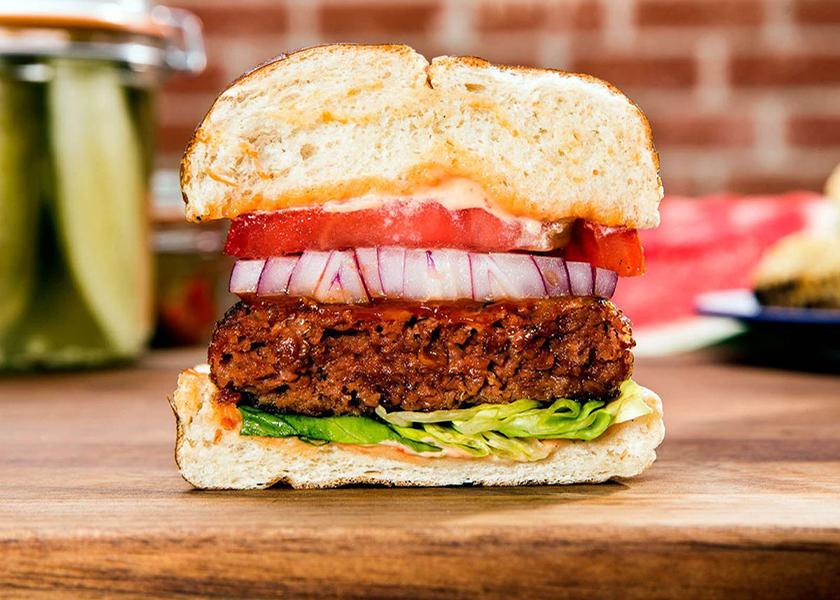Black Swan's Offspring?

Three. In less than two years. That’s the number of black swan events that have hit the cattle industry, stealing what meager margins cowboys had while creating windfall profits for beef packers.
A black swan is an unpredictable event of extreme rarity with potentially severe consequences. That describes the August 2019 fire at Tyson Fresh Meats’ facility in western Kansas. Ditto the COVID-19 pandemic and last week’s cyberattack on JBS’s meat packing facilities.
At some point disruptions such as those cease to be black swan events, if only because they are no longer rare. One significant consequence of the back-to-back-to-back black swans is a surge in the popularity – or at least sampling – of fake meats. We really can’t call this new trend a black swan because it was entirely predictable, but maybe it’s a cygnet, which is what young swans are called.
Market research group NPD reported plant-based shipments to restaurants fell 27% in April of last year during the pandemic disruption. Now, however, alternative meats have bounced back stronger, and much of that is because of price.
Pressure from various pandemic issues upended the pricing formula for both traditional meat and plant-based proteins, “making alt-meat a more competitive choice at the grocery store, far more quickly than any expert could have predicted,” reports Laura Reiley in the Washington Post.
As retail beef prices have risen over the last year due to supply-chain disruptions, making fake meat is becoming easier and less expensive. That helps bring down the cost of soy and pea-protein meats faster than anticipated.
A pound of Beyond Meat is down to about $5.70, according to the Washington Post. Beef prices are up 3.3% which puts ground beef at $4.10 to $6 per pound, according to the U.S. Bureau of Labor Statistics.
“Impossible Foods has cut its restaurant prices twice in the past year, and in February, the company cut retail prices by 20 percent, bringing the price of two quarter-pound patties down to $5.49,” Reiley reported.
The evidence suggests the COVID pandemic aided plant-based proteins to gain market share. But, as the plant-based industry is growing, it is still a minuscule segment of the $1.4 trillion global meat market.
While the plant-based industry is growing, it still represents a minuscule part of the $1.4 trillion global meat market.
“A lot of the things that have been said about those products have always dealt with growth rates,” Steve Meyer, an economist with Partners for Production Agriculture said. “But when you start at zero, the growth rates are pretty darn high.”
Indeed, alternative proteins have not disrupted animal agriculture to a large degree. Yet.
“By 2035, every tenth portion of meat, eggs and dairy eaten around the globe is likely to be alternative,” says a new report from Boston Consulting Group and Blue Horizon Corporation. The report, “Food for Thought: The Protein Transformation,” suggests alternative proteins could account for 11 percent of the market by 2035, and the number could be higher.
A key factor in the success of alternative proteins, marketing experts agree, is the growing consumer and investor interest in sustainability.
“Public concern for the climate – and, more broadly, sustainability – is rife,” the report’s authors wrote. “In addition, fully 85% of investors now incorporate environmental, social and corporate governance (ESG) into their investment strategies.”
Predictions of a 11 percent market share gain for alternative proteins over the next decade or so are far from a certainty. Alan Bjerga, SVP of communications at the National Milk Producers Federation told FoodNavigator-USA about the report, “This isn’t research. This is a marketing document.”
“Consumers tend to be very skeptical of highly processed, artificial foods; these types of reports often understate the factors that hinder their funders’ interests and overstate those that aide them,” Bjerga said.
Another skeptic of a rapid alternative protein growth at the expense of anima proteins is Jack Bobo, a veteran of 13 years at the State Department working on food policy. Now a consultant with Futurity, which advises companies at the intersection of food and technology, Bobo told FoodNavigator – USA it is logical to assume that lower prices will increase consumption (assuming that taste and texture also improve), and a race to the bottom could have some interesting effects on consumer psychology.
“The day these products become cheaper than (conventional beef) hamburgers is the day that hamburgers become a premium product.”







